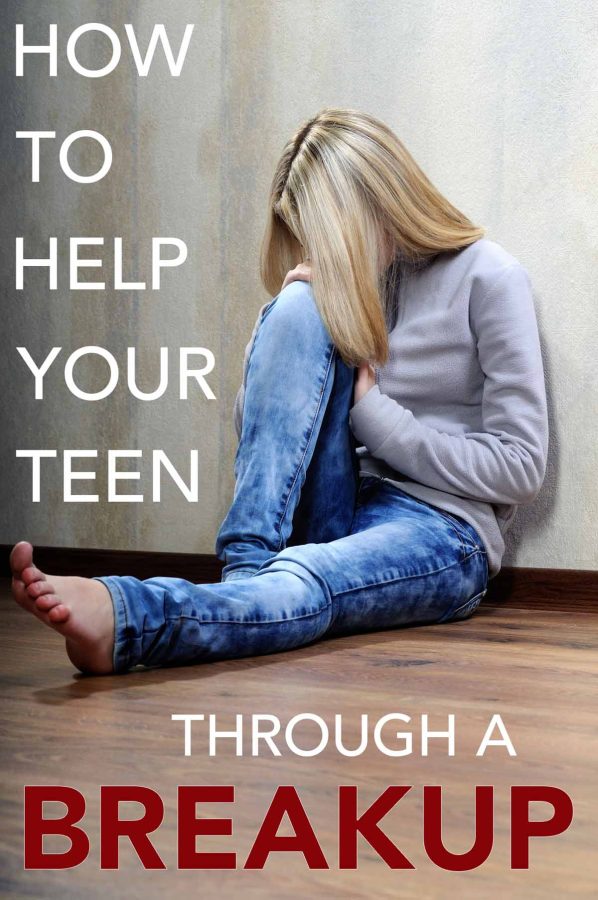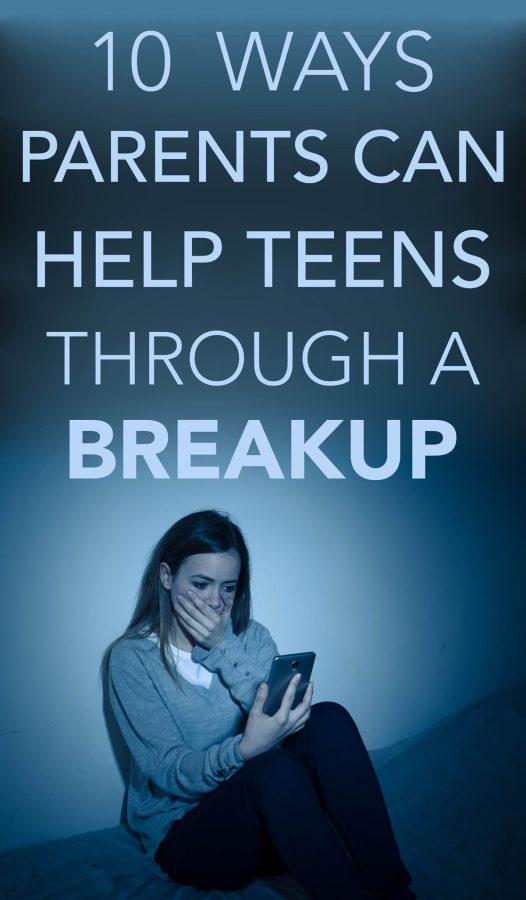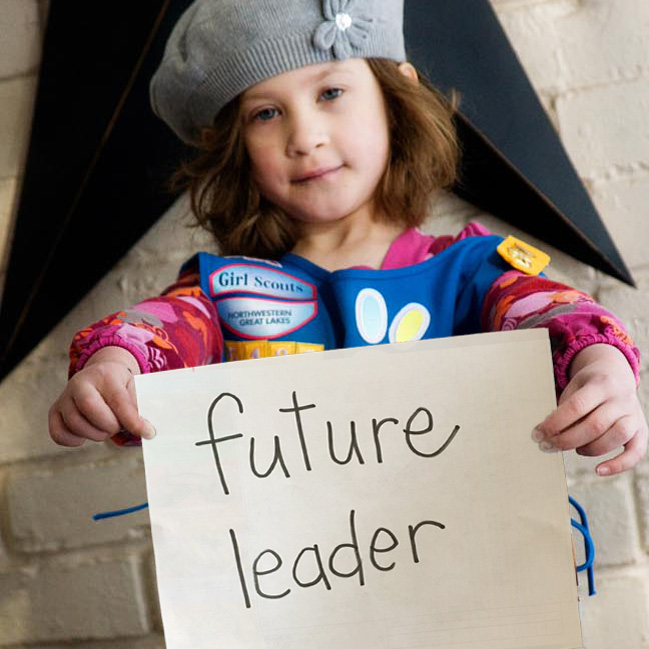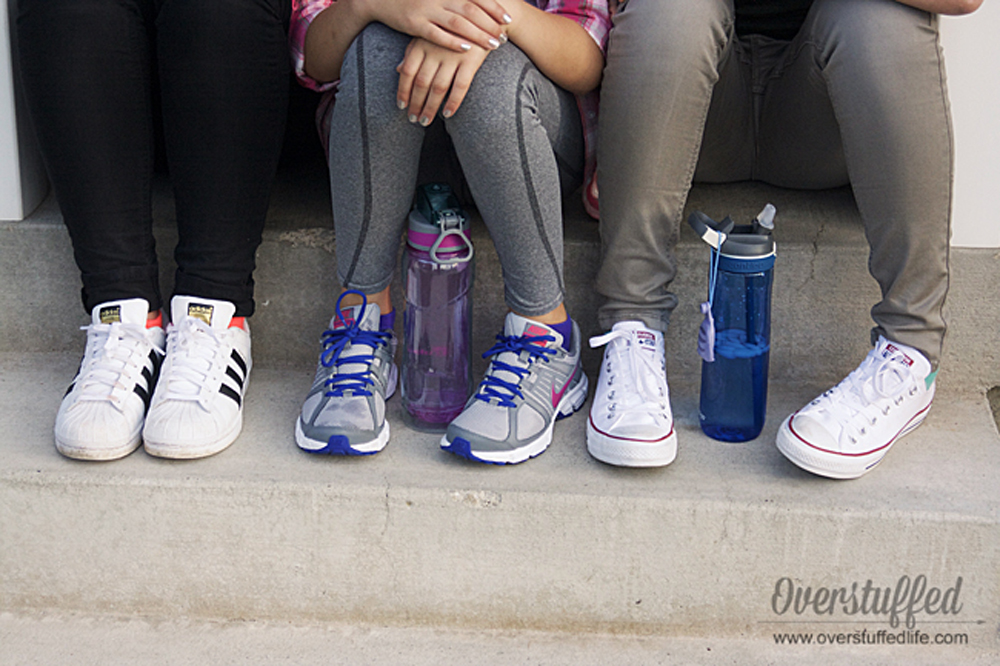Best Ways to Help Your Teenager Through a Breakup
Teenage breakups are hard to do. Here are ten ways parents can help their teens heal from their first heartbreak.

We knew it before she came in the front door. Between the car door slamming, her loud sobbing as she ran toward the house, and the sound of his truck roaring back up the hill, we knew. If we weren’t sure, the wailed “He broke up with me!” as she came into the house and fell into my arms definitely sealed the deal—our 16-year-old daughter had just had her heart broken by her first love.
Nothing prepares a parent for the deep emotional pain a teenage child experiences during a breakup. The first breakup is especially rough, but watching your child have their heart ripped into pieces over a boyfriend is never easy.
It is tempting for parents to minimize the emotional impact of teenage romantic relationships. When a breakup happens, many parents try to convince their children that teen dating isn’t that deep and that someday they’ll look back and see that it was all just puppy love. That is the first thing you definitely shouldn’t do. Your child needs your emotional support during this time because, to them, this is very, very real.
It is real, and it is absolutely devastating.
As the mom of three daughters, this was not the first breakup I’d had to support a kid through, but I think it might have been the worst. My daughter and I both learned a lot about how to get through the pain of a breakup, and especially what parents can do to help their teen deal with one of the most painful times of their life. If your teenager is experiencing the end of a relationship, here are ten ways you can help them through it.
Additional reading: How parents can help through a breakup from a teen’s perspective

10 Ways parents can support their teen through a breakup
1. Validate your teen’s feelings
It is important for parents to recognize just how intense the emotions are for a teenager after a breakup. It is important to let them know that whatever they are feeling is totally normal. They will probably feel all sorts of emotions in the weeks and months after breaking up: anger, sadness, jealousy, bitterness, etc. All of them are normal, and it is crucial that parents avoid minimizing or dismissing these feelings. They are quite literally going through all of the stages of grief and the last thing they want to hear is that their first relationship didn’t really mean anything.
Kids are going to handle breakups in all sorts of different ways. The daughter I referenced at the beginning of this post couldn’t stop crying for several days. I regretted making her go to school the day after, because she had to face her now-ex in a public way, and she wasn’t able to do it without crying. I let her stay home for a few days after that because I realized that seeing him was too hard and she wasn’t getting anything out of school anyway. To her, this was very validating.
Validating your child’s feelings simply means showing empathy to your child when they express how they are feeling. It doesn’t matter if you think what they are feeling is right or wrong or whether you feel the same way. All emotions are valid. Be supporting without pressuring your child to “get over” however they are feeling.
2. Be patient and understanding
Healing from a broken heart is going to take some time. As a parent, it is sometimes hard to stay understanding for all of that time, but it is necessary. Your teen is going to have some mood swings and may act in a way that is out of character. Try to recognize that any outbursts of anger are probably due to the emotional stress they are experiencing.
About a week after my youngest daughter’s breakup, she wanted to bake a cake with me. While we were frosting it and it wasn’t turning out how she envisioned, she absolutely lost it. This is not like her at all! A few hours later, she came downstairs and thanked me for being patient with her. She then said that she had the realization that she had been bottling up a lot of emotions due to the breakup and when the cake didn’t work they just all came out. She knew (and so did I) that her tantrum was nothing to do with the cake and everything to do with the end of the relationship. She just needed an excuse to let those feelings out.
Sometimes being patient just means sitting with them as they cry. When my oldest daughter called me from college after she broke up with her boyfriend, she just cried on the phone. There weren’t words for a long time, and all I could do was listen and tell her how much I loved her.
3. Stay open and approachable
It can get tiresome to listen to your teenager process all of these big feelings. Do it anyway. Be a supportive listener, and make sure they know that you are always there to be a safe space for them. Listen actively and empathetically and try not to give commentary unless they specifically ask for advice. Your child should know that they can come to you whenever they need to talk about it and not feel judged for how they are feeling. So many things come up after a breakup, and your teen will need to talk about them with a supportive parent.
Related: 7 Reasons Your Teenager Won’t Talk to You
4. Don’t baby them
In all of your listening and validating of feelings, make sure you’re not veering into enabling territory. Use the experience to teach your teen that they can do hard things and that life does move on and get better. The best way to do this is to help them get out of bed, put away the ice cream, and get themselves to their regular school, work, and extracurricular activities.
Remember how I mentioned that I regretted making my daughter go to school the day after her breakup? When I asked her what she felt was the best thing we did to help her through that difficult time, the first thing she said was that I made her go to school that day. That surprised me! She said that even though it was hard, it helped her to realize that life went on and that she would be okay.
5. Respect their privacy
Another daughter of mine broke up with her boyfriend of three years during her first month of college and didn’t even tell me about it for two weeks. I knew because she told one of her sisters, but I also knew it was important for me to wait until she was ready to tell me herself.
Letting your child work through things alone and giving them privacy and space if they need it is just as important as maintaining an open dialogue. You know your child best, so if they seem to need some space respect that and let them come to you when they are ready. When they do start to open up, avoid asking too many questions and let them share things on their own timeline.

6. Avoid interfering
This goes along with respecting their privacy, but do not try to fix things for your teenager. Refrain from reaching out to their ex no matter how much you liked him/her. Resist the urge to send a text message to the ex’s parents to try to understand what happened on their side. Do not talk about your teen’s emotions or relationship status on social media. Let your child handle things in their own way, and offer them guidance throughout the process. If you have been a good listener and have been supportive of their choices, they will be much more likely to listen to your advice.
7. Offer perspective
When you feel it’s appropriate, you can help your child gain some perspective by sharing your own personal experience with the loss of a relationship. Share the things that have helped you learn the difference between healthy relationships and not-so-healthy ones. Help them to see the breakup as a learning opportunity and remind them that they are strong and resilient.
Don’t forget to ask them what they are learning about themselves during this time, too. Just because teenagers have a lack of life experience, does not mean that they are incapable of recognizing life lessons. Breakups have actually been an incredible time of learning and growth for each of my three daughters, and helping them to see that perspective on their own increases their confidence and maturity.
8. Encourage self-care
Remind your teenager to prioritize their well-being. Help them to see that it is best to take some time to focus on themselves before jumping into a new relationship. Encourage them to find some healthy coping mechanisms like exercise or new hobbies.
One thing I have tried to do for my girls is to buy them a few new self-care items after a breakup. Not only does this help them to remember to take care of themselves, it can also help them to create new memories and not find themselves getting caught up in old memories. For instance, a new perfume will help your daughter to pamper herself and will also keep her from wearing the old perfume that reminds her of the relationship that just ended.
Another good idea that can help with self-care during this healing process is journaling. Buy your daughter a fresh new journal and encourage her to write in it as she works through her feelings. I bought my daughter a self-love workbook and some self-love and self-confidence healing oils after her breakup.
It is extremely important that teenagers learn self-worth! Teens often think they aren’t worthy of love unless they have the external validation of a romantic relationship. Learning self-worth will help them hold on for a relationship that meets their standards.
9. Encourage connection with supportive friends
While parents are certainly an important support system, good friends are a critical part of recovering from teen breakups. Encourage your child to spend time with understanding friends—many of whom have gone through their own experiences with breakups. They can talk your child through things in a way that you can’t. If your teen seems to be isolating herself during this time, suggest group activities if you feel it’s appropriate.
One of the best things in my youngest daughter’s healing process was a close friend who took her out for a girl’s day of shopping and eating. Not only did it take her mind off things, it reminded her that she still has plenty of people in her life who love her and that there is much to be grateful for.
10. Monitor for signs of struggle
A very important thing for parents to do during your teen’s grieving process is to monitor their mental state. Be very aware of any signs of depression or prolonged distress. Seek professional help from school counselors or a licensed clinical social worker, especially if your child has a prior history of mental illness. If your child does end up needing therapy (mine did), remind them that it is a sign of strength and that they shouldn’t feel embarrassed about it.
Teen relationships are exciting and fun but when they end it can feel like the end of the world. Parental love and understanding is essential to get them through the hard times! Remember, you can’t save your child from feeling heartbreak, nor should you. Be there for your teen to listen, to love, and to cheer them on throughout their healing process. If they are anything like my kids, their strength and resilience will amaze you.
This post contains affiliate links.




Thank you for writing this. It was very enlightening from a parents perspective.